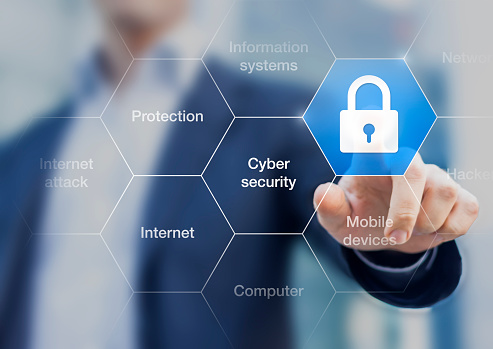How safe is online data storage? Should you entrust your personal, financial and proprietary data to a cloud IT service? The answer to the first question is, yes, because cloud storage, among other things, employs data encryption. (More on this later.) The answer to the second question may be moot. Your organization may be subject to laws on business continuity, and off-site data storage may be your only option.

Why online data storage is safe
Entrusting your data to a service provider is safer than storing it locally when said provider takes the following measures:
Your data arrives already encrypted.
Your data uploads to an external server, but before it leaves the friendly confines of your system, an algorithm does its encryption magic. The algorithm is from a key, and that key can only be turned with a user password to access encrypted files. Algorithms are complex. To break into an encrypted file without a password requires much more time and computing power than the average hacker can afford.
When you can’t encrypt your data, the provider will do it for you.
Sometimes, when the client’s system is slow or poorly connected, the service provider can activate server-side file encryption. As in the pre-upload process of encryption, access is through passwords. The difference is that the service provider does the encryption, generates the passwords, and works closely with client data center administrators. Reliable service providers ensure strict password access and security measures.
SSL (Secure Socket Layer Encryption) is another layer of encryption.
SSL protects login credentials and the data stream from unauthorized tapping. It is another encryption technique used to securely transfer your data to the server (and vice versa). Using software on your system and the server, SSL forms the link. When the data flows between you and the server, the server identifies the originator as valid — through a certificate process — and the secure, encrypted session begins.
External data centers provide hardened and focused data security management.
Dedicated data centers typically have several servers in the same access-restricted location. The best security precautions include:
Redundancy is guaranteed through RAID reliance.
RAID, a redundant array of independent disks, is a common configuration in the most secure data centers. If a hard disk fails, its data goes to a new (redundant) hard disk through yet another preset algorithm. This ensures client data is not lost.
In addition to high-tech security features, the best service providers have data centers hardened to handle disasters — fire and flooding, etc. They may have their own backup facilities away from their premises.
You can do more…
Whether you opt for a hybrid-cloud service model or to transition all your data to the cloud, you cannot outsource your responsibility to safeguard your data. Laws such as HIPAA, for example, require business associate contracts. Also, encryption notwithstanding, there is no substitute for password security.
Finally, one excellent strategy for data storage and backup is to have a second, locally accessible backup. That approach offers the obvious advantages of even more redundancy and quicker recovery. It also has the advantage of demonstrating full compliance through off-site redundancy in the case of natural disaster.
…and we can help.
Centerpoint IT is the trusted choice when it comes to staying ahead of the latest information technology tips, tricks and news. We can be your resource for the best off-site storage and security. Contact us at (404) 781-0200 or send us an email at info@centerpointit.com for more information.
Call our business managed IT services department directly at (404) 777-0147 or simply fill out this form and we will get in touch with you to set up a getting-to-know-you introductory phone call.
Fill in our quick form
We'll schedule an introductory phone call
We'll take the time to listen and plan the next steps
11285 Elkins Rd Suite E1, Roswell, GA 30076
© Copyright 2024 Centerpoint IT. All Rights Reserved. Website in partnership with Tech Pro Marketing. | Privacy Policy
Get Immediate Help For All Your Technology Issues (404) 777-0147

If you want our team at Centerpoint IT to help you with all or any part of your business IT, cybersecurity, or telephone services, just book a call.
Fill in your information below to get started today.
"*" indicates required fields
Fill in your information below to schedule now.
"*" indicates required fields
Before your organization commits to 1, 2, 3 or even longer managed IT services contract, understand what you’re getting. Centerpoint IT gives you the facts in our Managed IT Services Buyer’s Guide.
Enter your information below and we’ll send it over.
"*" indicates required fields

We are turning 15 and want to celebrate this milestone with you because without you this would not have been possible. Throughout this year look for special promotions on services and tools aimed at Making IT Simple for You so you can focus on your business.

We are turning 15 and want to celebrate this milestone with you because without you this would not have been possible. Throughout this year look for special promotions on services and tools aimed at Making IT Simple for You so you can focus on your business.
https://calendly.com/centerpoint-it/discovery-call